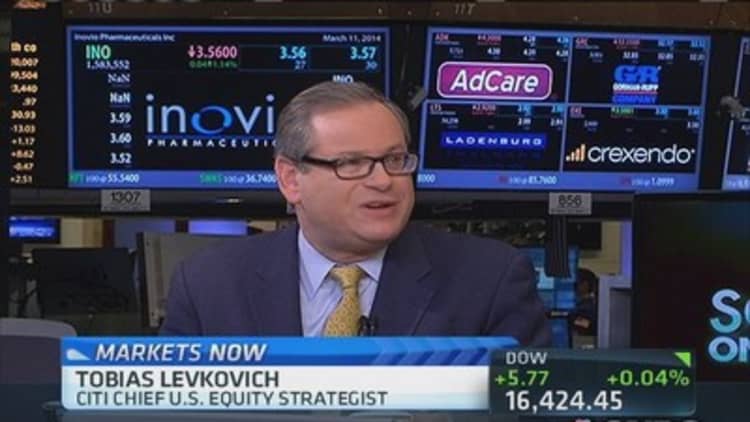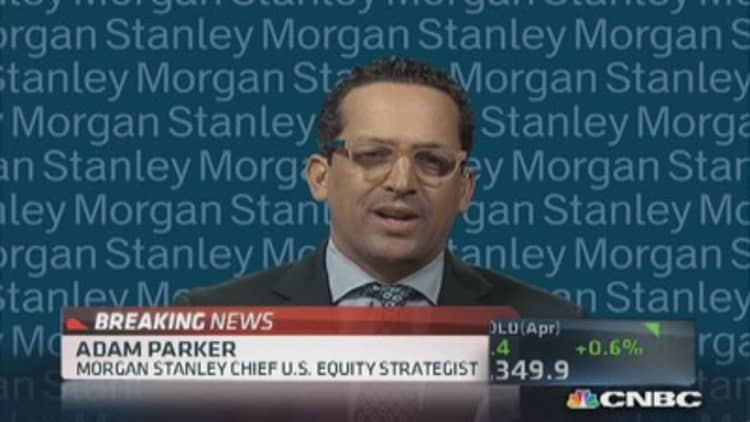
The stock market entered "euphoria mode" late last year and has remained there, except for a week in February, as "speculative froth" bubbles around the market's hottest sectors, Citi's chief equity strategist told CNBC on Tuesday.
Tobias Levkovich said he remains generally bullish on 2014, which he thinks has a 90 percent chance of ending positive.
But he sees worrisome signs in Citi's "Panic-Euphoria" model, which crossed into "euphoria mode" in November and December. He said that indicates a high probability of markets swinging downward.
"You worry about social media. You worry about biotech. You worry about some of these fuel-cells stocks where there is some speculative froth going on," Levkovich said on "Squawk on the Street."
(Read more: Dick Bove sees recession, 7% rate...in a few years)
Maintaining an end-of-year price target of 1,975 points for the , Levkovich said only certain segments of the market suffer from near bubble-conditions. In the lead-up to the dotcom bust of the early 2000s, stocks surged without earnings following soon afterward. In the years since the 2008 financial crisis, corporate earnings rose, but investors remained wary over the European debt crisis and budget standoffs in Washington. Last year, stocks began catching up to earnings, Levkovich said.
"You could end up with that late '90s parallel," Levkovich said. "The question is do we have the broad-based speculative froth? And we don't. That's clearly not there."

Adam Parker, chief U.S. equity strategist for Morgan Stanley, said stocks have not entered "bubble territory." Parker has one of the more bullish outlooks on equities. His year-end price target for the S&P 500 remains at 2,014, more than 140 points above current levels.
At 15.5 times forward earnings, the S&P doesn't look frothy to him.
Stocks that make the market look like 1999—including fuel cell-maker Plug Power, for example, and its exponential runup—aren't widespread. Parker said market observers can always target isolated securities. He said fast-growing stocks that look cheap will underperform because the market has figured out something wrong with their business models, compared to fast-growing expensive stocks.
(Read more: Buckle up! Stocks in 'risky territory': Bogle)
What's more, the Federal Reserve's easy money policies allowed companies to push financial obligations out two to three years, and that means a very low risk for corporate bankruptcies, Parker said.
"If we're about to head into a bubble, then you'll want to be long for a while," Parker said on "Squawk on the Street." "I think everyone wants to call in and talk about it. If you want to call the top of the cycle, two things would be in place. One is hubris. And the other is debt. Hubris meaning some form of management arrogance gone awry. ... I don't think we're very frothy on that point."
(Read more: Cooperman calls market's direction)
Investors should, however, monitor drastically rising amounts of debt spread out over the global economy, which hit a record $100 trillion last year, Parker said. As long as the Fed remains accommodative on short-term interest rates, equities should have plenty of support, he added.
Parker listed health care, chemical and growth-focused technology stocks as his strongest plays.
—By CNBC's Jeff Morganteen. Follow him on Twitter at @jmorganteen and get the latest stories from "Squawk on the Street."


